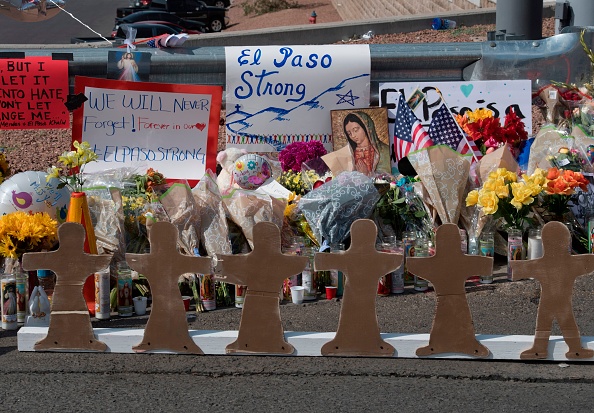Maybe this will be the time that the US finally gets over its love affair with guns

Even Donald Trump, for once, didn’t appear to believe what he was saying.
“Mental illness and hate pull the trigger, not the gun,” opined the President in his prepared statement from the White House on Monday, in response to the latest mass shootings on US soil in El Paso and Dayton which have claimed 31 lives.
The President appeared so rattled by what he was – unusually – reading from a teleprompter that he managed to get the latter Ohio city’s name wrong, substituting that of Toledo.
In retrospect, it would have been better had he stumbled over his key statement instead, and in so doing recognised the moral futility of defending a position that should long ago have been borne away by the torrent of blood from its victims.
For the reality is that while every country in the developed world has its share of the mentally disturbed, racists, haters, and socially inept video-game-obsessed nerds, only the US allows almost untrammelled access to guns.
It should therefore be of little surprise that it is also only the US where largescale gun-related mass murder fatalities take place on a regular basis. In 2019 alone, 62 people have been killed in such incidents. And the year is only in its eighth month.
Yet somehow, this obvious connection has failed to translate into political action, with only the most cursory of checks performed on those seeking to purchase arms in many states.
To draw an absurd parallel, it is as if the US tobacco lobby had somehow managed to stave off the overwhelming evidence that cigarettes cause cancer by suggesting that the fact that only a minority of smokers die from related diseases somehow excuses the medium of its culpability, therefore necessitating only limited restrictions on their sale.
Mercifully, the US has recognised the public health benefits of tobacco regulation. Gun control has not followed, because guns, unlike tobacco, have serious political power in the form of the lobbying behemoth that is the National Rifle Association (NRA).
A quick glance at the NRA’s website informs the casual browser that it is: “America’s longest-standing civil rights organization. Together with our more than five million members, we’re proud defenders of history’s patriots and diligent protectors of the Second Amendment.”
This linkage of rights, numbers, and patriotism has proven to be a potent factor in US politics.
The constitutional right to bear arms is continuously invoked as a determining factor in the very creation of the nation in the face of the tyranny of the British.
Latter day holders of the most advanced and savage form of assault weaponry known to mankind can therefore somehow imagine themselves as analogous to the brave band of Founders seeing off the Redcoats with muskets and rifles.
This mythology has been utilised to great effect in order to repel attempts to tighten up gun laws.
Democrats have been wary of coming out in favour of gun control ever since a snarling Charlton Heston – the NRA’s then president – took to the stage at the organisation’s 2000 Convention hoisting a rifle overhead while goading vice president Al Gore that it would have to be removed “from my cold, dead hands”.
Gore’s knife-edge defeat in gun-owning Florida in the presidential election that year seemed to confirm the folly of challenging a gun lobby that could turn out numbers as well as campaign contributions.
But with the NRA under pressure from the sheer volume of gun incidents, and internal splits having – even if only temporarily – diluted its customary effectiveness, perhaps this time it will be different.
Usually, once the outcry following a mass shooting subsides, Congress finds any number of reasons to block even the most basic of options, aided by the filibuster power in the Senate that requires 60 senators to break it.
However, a bi-partisan move now appears to be taking shape to provide nationwide funding for states that wish to invoke “red flag” laws which allow police, with a judge’s consent, to seize an individual’s weapons if they are deemed to be a threat to themselves and others.
In any other society, the idea that the incremental changes being proposed might amount to much would be laughable.
But America’s love affair with guns has been long and deep, and it will take time and patience to wean Americans away from the idea that every form of weapon should be available to everyone.
Democratic presidential candidates are doing their bit, falling over themselves to declare that they will legislate. The President’s tweeted hints that he might be willing to offer a modicum of gun control in exchange for immigration reform could offer another route forwards, even if he resiled from that idea when facing the nation.
It is not possible to legislate evil away from the world, as the NRA often likes to point out. But it is certainly possible to prevent the evil or the mentally ill from obtaining the ability to enact wickedness.
As the US ponders its response to the latest atrocities, it should consider this equation carefully. Lives depend on it.
Main image credit: Getty